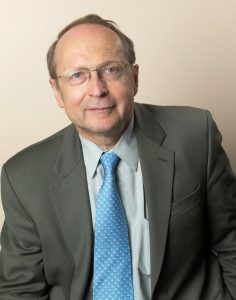 Peter Palese is a Professor of Microbiology at the Icahn School of Medicine at Mount Sinai. His research is in the area of RNA-containing viruses with a special emphasis on influenza viruses. Specifically, he established the first genetic maps for influenza A, B, and C viruses, identified the function of several viral genes, and defined the mechanism of neuraminidase inhibitors (which are now FDA-approved antivirals). He was also a pioneer in the field of reverse genetics for negative strand RNA viruses, which allows the introduction of site-specific mutations into the genomes of these viruses. This technique is crucial for the study of the structure/function relationships of viral genes, for investigation of viral pathogenicity and for development and manufacture of novel vaccines. An improvement of this technique has been effectively used by him and his colleagues to reconstruct and study the pathogenicity of the highly virulent, but extinct, 1918 pandemic influenza virus. His recent work in collaboration with Garcia-Sastre has revealed that most negative strand RNA viruses possess proteins with interferon antagonist activity, enabling them to counteract the antiviral response of the infected host. Most recently in collaboration with Adolfo García-Sastre and Florian Krammer he has been involved in the development of universal influenza virus vaccines and SARS-CoV-2 vaccines and of their variants of concern (VOC).
Peter Palese is a Professor of Microbiology at the Icahn School of Medicine at Mount Sinai. His research is in the area of RNA-containing viruses with a special emphasis on influenza viruses. Specifically, he established the first genetic maps for influenza A, B, and C viruses, identified the function of several viral genes, and defined the mechanism of neuraminidase inhibitors (which are now FDA-approved antivirals). He was also a pioneer in the field of reverse genetics for negative strand RNA viruses, which allows the introduction of site-specific mutations into the genomes of these viruses. This technique is crucial for the study of the structure/function relationships of viral genes, for investigation of viral pathogenicity and for development and manufacture of novel vaccines. An improvement of this technique has been effectively used by him and his colleagues to reconstruct and study the pathogenicity of the highly virulent, but extinct, 1918 pandemic influenza virus. His recent work in collaboration with Garcia-Sastre has revealed that most negative strand RNA viruses possess proteins with interferon antagonist activity, enabling them to counteract the antiviral response of the infected host. Most recently in collaboration with Adolfo García-Sastre and Florian Krammer he has been involved in the development of universal influenza virus vaccines and SARS-CoV-2 vaccines and of their variants of concern (VOC).
Selected Awards and Professional Activities
2020 – Elected Fellow, National Academy of Inventors
2018 – Member, Scientific Advisory Board, Institute of Human Virology
2017 – Board of Directors, Global Virus Network
2017 – Drexel Prize in Translational Medicine
2017 – IHV Lifetime Achievement Award for Scientific Contributions,
Institute of Human Virology, University of Maryland School of Medicine
2016 – Maurice Hilleman/Merck Award, American Society for Microbiology
2016 – Honorary Doctorate, McMaster University
2015 – Inventor of the Year Award, Icahn School of Mount Sinai at Mount Sinai
2015 – Beijerinck Virology Prize, Royal Netherlands Academy of Arts and Sciences
2014 – Elected Fellow of the American Academy of Arts and Sciences
2014 – Honorary Doctorate, Baylor College of Medicine
2012 – Election of the Institute of Medicine of the National Academy of Sciences
2012 – Sanofi-Institut Award
2010 – European Virology Award (EVA), European Society for Virology
2006 – Elected Member, The German Academy of Sciences Leopoldina
2006 – Robert Koch Prize, Berlin
2002 – Corresponding Member, Austrian Academy of Sciences
2000 – Member, National Academy of Sciences


